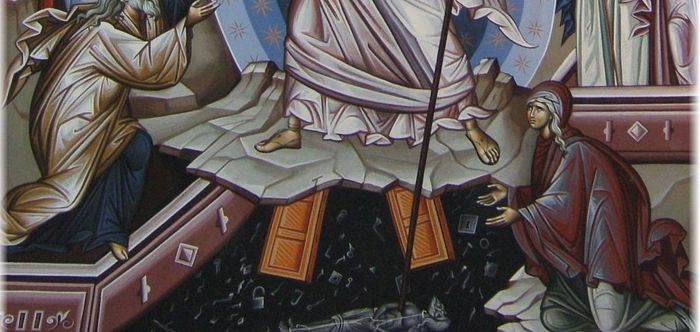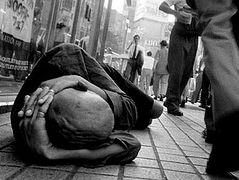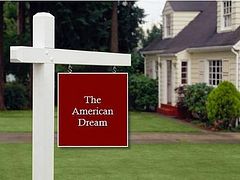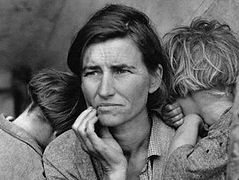America has an odd view of the poor. It is a view that reveals much about the underlying theological assumptions that create and support our culture. I will quickly quell any protests about the mixing of theology and politics by saying, everything, even politics is rooted in theology. More about that later on…
In general terms, when Americans encounter the poor, our first thoughts go to the individual and his/her story. What happened to them? What decisions did they make? Why are they stuck in this situation? Our stories of success do the same thing. We see the rich and focus on their individual accounts of luck, entrepreneurship, and brilliance. It is an analysis and a cultural reflex that is of a piece with Adam Smith’s musings about economics and commerce. Classically, it is called Capitalism.
We have a hard time in American culture managing a critique of Capitalism. The word acquired almost deified valuation during the Cold War. In the American mind, Communism was bad and Capitalism was good, and there was little nuance in the sentiment. Adam Smith did not write in a vacuum. He was a major figure in the Scottish Enlightenment (1700’s), perhaps the most rigorous and thorough application of reason and individualism the world has ever known. One author has described it as the movement that gave birth to modernity.1
Reason and individualism, though rarely identified as such in contemporary parlance, are at the very heart of American consciousness. When we see the poor, our individualism draws our attention to each single instance. Our rationality asks questions regarding that individual’s choices, virtues and failings. Occasionally that same individualism and rationality turn their attention to God and wonder why He allows such problems to exist.
Adam Smith’s contribution to economic theory was rooted in “rational self-interest.” It was put forward that if markets are free, rational self-interest will be the engine of success and prosperity. It is an idea that is so current that it stalks the hallways of government to this day. It operates as a general assumption – something that need not be defended because it appears to be self-evident truth.
It is not God’s truth.
The closest thing to an economic theory in the Scriptures is embodied in the laws of the Sabbath Years. Every seven years, Israel was required to allow the ground to lie fallow, to give it a rest. There was then a cycle of seven Sabbath years (49 years) at the end of which (the 50th), all debts were canceled, slaves were freed, and land was returned to its original owners. In Hebrew, the word for fifty is “Jubilee.” Indeed.
This radical reset of the economy has a particular insight into the role of structures in the life of a people. The laws regarding the poor (the requirement to allow the poor to “glean” the fields) makes no distinction about the circumstances of their poverty. It doesn’t matter how you became poor, there are structures established for your protection. The Jubilee is something of a structural protection against rational self-interest. There is no doubt that people will act in their own self-interest. It is inherent in sin. Left unchecked, that self-interest always yields the same results: an increasing minority accrues the wealth while others are deprived. Self-interest is inimical to equality and rarely produces justice.
God is not a Communist. However, He reveals to us the role played by the structures of our world. There is no level playing field. There is such a thing as privilege and it is written into the structures of every society. Without intervention, those structures become engines of an inequality that crushes the weakest, the least talented, the unlucky, and the feckless. So, God intervened.
The economic ideas of our culture are deeply theological. In popular American Christianity, salvation is seen as a matter of rational self-interest. It is more accurate to say that rational self-interest was a theological concept before it became a part of Adam Smith’s economics. The role of decision-making and the will, in their almost limitless conception, are endemic to American religion. In the “hour of decision,” God is a choice. This over-emphasis on a rationalized concept of the will distorts the whole of the American gospel. I think it’s why we are so fascinated with hell.
For example, the arguments surrounding hell and its eternal necessity, are deeply grounded (in modern times) within our need to safeguard rational self-interest at all costs. Without such a looming consequence, who would ever rationally choose good over evil? Or so we think. This is a terrible distortion of the will. We certainly have a will, and it has some measure of “freedom.” But the playing field of the human soul is not level. The ancestral nature of our existence (no one starts from scratch) has tilted the field of the human soul from the beginning. We are not “totally depraved” as some would say, but we are all a bit depraved.
The Orthodox account of human sin is not grounded in the will. It is grounded in mortality. Adam and Eve are not punished by being consigned to a world of rational self-interest. They simply enter mortality. It is death that is our problem.2 The “sins” we commit, even through the poor use of our will, are ultimately a consequence of living in a world where “death reigns” (Rom. 5:17). The Orthodox proclamation is that Christ defeats death: the playing field is tilted in the other direction.
Christ’s descent into Hades and His resurrection from the dead are God’s cosmic Jubilee. Indeed, Christ links His entire ministry with a cosmic Jubilee:
And He was handed the book of the prophet Isaiah. And when He had opened the book,
He found the place where it was written:
“The Spirit of the LORD is upon Me,
Because He has anointed Me
To preach the gospel to the poor;
He has sent Me to heal the brokenhearted,
To proclaim liberty to the captives
And recovery of sight to the blind,
To set at liberty those who are oppressed;
To proclaim the acceptable year of the Lord.”
Then He closed the book, and gave it back to the attendant and sat down. And the eyes of all who were in the synagogue were fixed on Him. And He began to say to them, “Today this Scripture is fulfilled in your hearing.” (Lk. 4:17-21)
The “Acceptable Year of the Lord” is the cosmic Jubilee.
In His descent into Hades, Christ “loosed the bonds of the captives.” The narrative of Pascha generally makes no mention of rational self-interest. Scandalously for many, it says nothing about the role of the will in those who are delivered. This indiscriminate generosity is deeply troubling for many and almost always finds some response that re-establishes the primacy of the will. We agree that the bonds of the captives are loosed, but they really have to want their bonds to be loosed.
As a culture, our myth of rational self-interest has made us leery of any scheme that attributes suffering to the structures of society. Such narratives carry a tint of Marxism for most and threaten to undermine our cherished individualism. Imagine, if you will, a proclamation that all college debts were to be forgiven. The response, I suspect, would be to complain that some of the debts were acquired foolishly and without concern for consequence. Those who are foolish or stupid must be made to pay. Imagine a fifty-year cycle in which the accrued wealth of all was re-distributed. The cards are re-shuffled and the game of Monopoly can begin again.
I hear the protests already. But I am not writing to make economic suggestions. That would be a useless exercise. However, I do write to suggest that our theology has been co-opted by a false narrative that skews our thinking about the whole of our faith. Rational self-interest (even when married to hell and heaven) is not a proper basis for Christian thought. The narrative that is our inheritance in Christ is found in Pascha. It was found in Passover before that. What decisions would a culture make about its problems if its thoughts were governed by Christ’s Pascha? How would it view the poor? What would it do with the structures that tilt the field and lock the door?
Dear America, What would Jesus do? No, What did He do?





